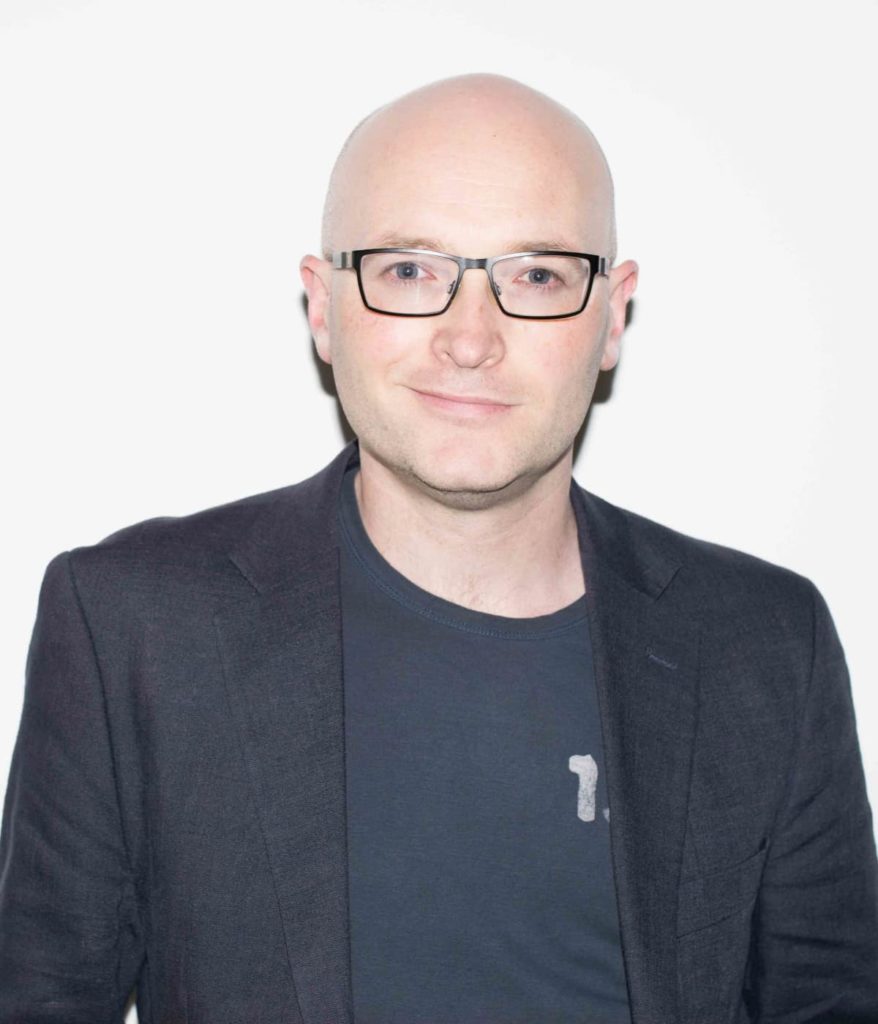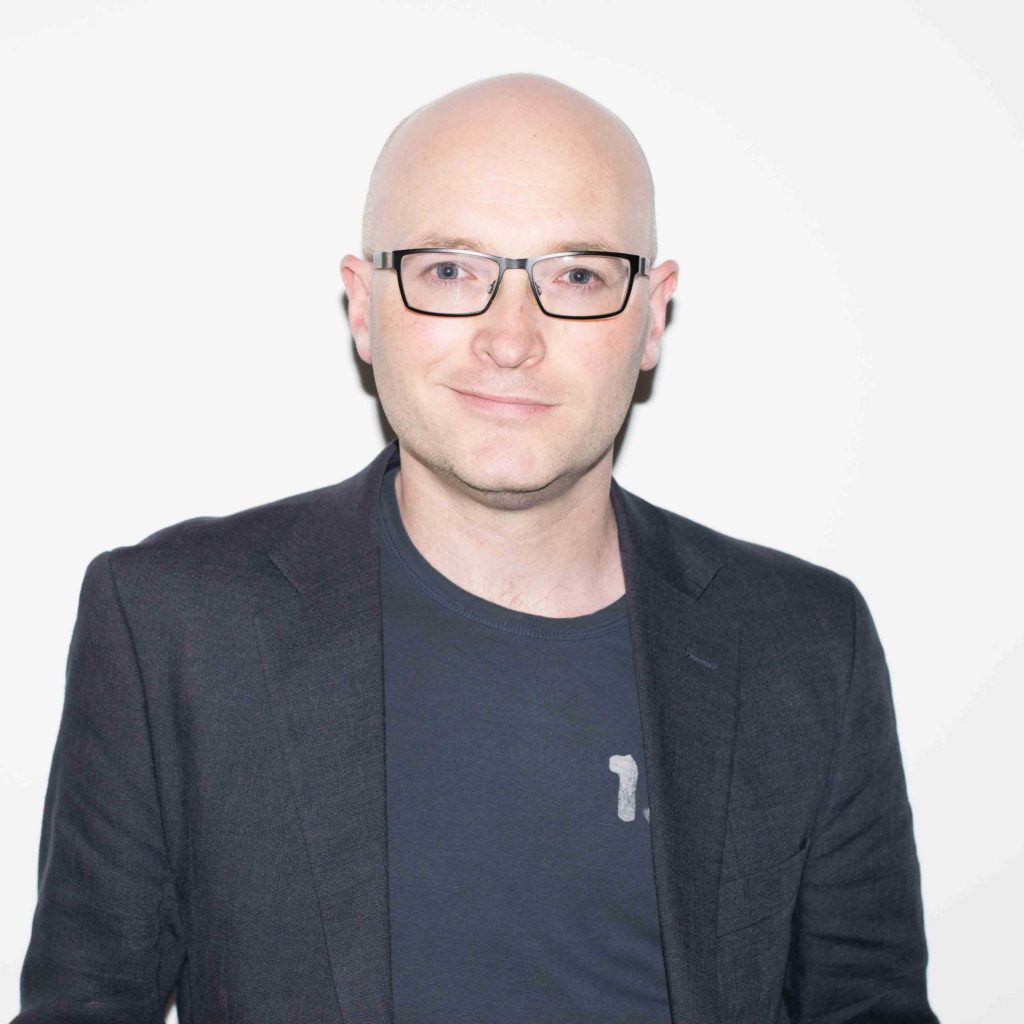Interstellar Business Show
Podcast for Technology CEOs and their teams.
It's time to grow your mind, elevate performance, and own your future 🚀
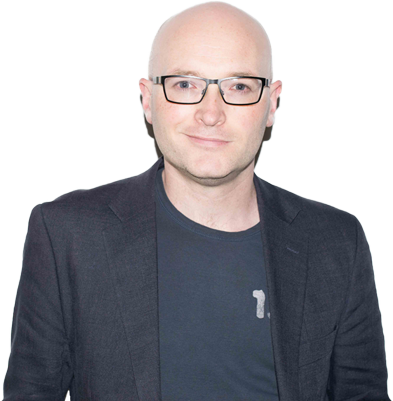
Interstellar Business Show
Episode: 0006
Open business culture: Paulina Tenner on new management ideas
Featuring....

Episode Introduction
Andrew is joined by Paulina Tenner, entrepreneur, investor and upcoming author of “What the business leader learned from the stripper.”
Paulina shares experiences and ideas about Open Culture — an alternative team management concept. One that Paulina and her teammates realise every day in their business GrantTree.
Open culture is a thought provoking concept, and if you’d like your team to max out their potential — this is a must listen.
Episode notes & resources
You can connect and follow Paulina via the following…
Newsletter subscription link (for book updates): http://eepurl.com/8zvOv
Twitter: https://twitter.com/paulinatenner
LinkedIn: http://linkedin.com/in/paulinasygulska
Instagram: https://www.instagram.com/paulinatenner/
Transcript
Please note, this transcription is autogenerated, so there may be errors.
Andrew Bull 0:31
Welcome to the new season of the interstellar business show. Now, it’s been a little while since my last episode. And that’s been kind of intentional because we’ve been working on a few things and what we’ve been developing. But I guess the thing that’s really going on right now, you know, the C word, Corona virus and all of that is just massively changing the world around us so quickly, and even changing my plans and what we’re doing with the show. Turn on address and acknowledge and now in this first episode of the new season, I’m not going to keep talking about coronavirus because I think people including me, need a mental break from it. And I actually think folk, as you believe focusing on business and business development, and trying to move forward with some positivity is a good thing for our mental health and not just ours, but the people around us. So I spend the whole day thinking about Corona, virus and all the terrible things it’s doing and the impact it might have on society, this not only going to negatively impact me, it’s going to negatively impact my family and you the listener as well. Okay, so I’m just going to acknowledge It’s here, it’s bad, but let’s try and be positive and do what we can together to move forward with our businesses. Because also, businesses grow right business, you know, when we come down to it, what’s business really, it’s someone’s selling fish to someone else. So someone else can buy bricks to build a house. That’s all business is exchanging value. So people can create stuff and grow better futures. So business isn’t a dirty word right now. And I think some of us might be afraid to be promoting our businesses right now. Because you might feel like, Oh, it’s slightly shameful in such a time of need, and emergency. But actually, we need commerce and the wheels of business to keep turning as best as it can to try and support out, you know, a better future for all of us. So I don’t think there’s anything immoral about that. In fact, I think it’s a moral thing for us who the business people to keep trying to build better businesses that employ more people that bring more value to the world and help more people. So I think that can be a bit positive. And I don’t think we need to be feel shameful about that. So yeah, Let’s all try and be positive and move forward and focus on what we can do and helping each other and obviously help people where they can. Alright, without further ado, let’s get Get into this week’s interview.
Speaker 3:03
Don’t miss out on future episodes, be sure to subscribe to our show and keep notifications on.
Andrew Bull 3:23
So I’m really pleased this week to be speaking and learning from Paulina Tenner. She’s the author of an upcoming book, which has the title, What The Business Leader Learned From The Stripper, and I’m really excited. I think she’s got a lot of interesting views and I’m still learning about those views. So welcome to the show, Paulina.
Paulina Tenner 3:41
Thanks, Andrew. It’s a pleasure to be on the show.
Andrew Bull 3:43
Amazing to have you here. So so can you tell me about what what inspired this book?
Paulina Tenner 3:49
I would say all the copies and lunches I had with numerous business founders who were really intrigued by how my company GrantTree is running. So we have a flat structure. We have No hierarchy. In our company, we have transparent financials, we have people setting their own pay, which a lot of founders were astounded to find out about. And I wanted to write about what inspired that kind of gold company culture, and a little bit about what I believe is the leadership of the future. And that involves the feminine and the masculine parts inside of us coexisting and working well together to create the kind of leadership that the world really needs.
Andrew Bull 4:33
Interesting, and I love I love you this whole idea of open culture is really interesting because a lot of corporates I’ve dealt with a lot of corporates gone cook, you know, I’ve gone on pitch big billion multi billion dollar companies. And
Paulina Tenner 4:45
Yeah
Andrew Bull 4:46
All that their structure is so closed if a new idea gets suggested, they got to think about it for three months, and then, you know, they’re so close to trying new things. Is that part of something that’s driven you’d get like going against that kind of mentality?
Paulina Tenner 5:00
Yeah, so my co founder and I was coming out of Accenture. I was freelancing for corporates at the time we start before we started Grant Tree and we wanted to create the kind of workplace we would want to work in if we’re looking for a job. And that involved agility that involved being able to have an impact as a person that involves being trusted, as opposed to being kind of manipulated into performing well using fear and fundamentally shift from how most companies are being granted.
Andrew Bull 5:32
Interesting. Are you are you familiar with Alfred Adler who have said that right? We’re gonna make myself seem really silly. Now, have you interested with that? those concepts of like, just focusing on improvement rather than trying to reach some end goal with what you’re doing?
Paulina Tenner 5:46
Yes, I would say that holacracy which is the structure we have under which we operate is all about an operational governance structure alternative to hierarchy helps us to have the kind of an organisation which relies on iterative changes, then literally anybody can propose a change and stop something that prevents them from doing great work. So so it’s about enabling people empowering people to have an instant impact within an organisation.
Andrew Bull 6:20
Gotcha. Okay, brilliant. Wow, that’s, I mean, I love I love that breaking down the barriers of remit of overcoming institutionalisation, which I’ve, I’ve always, really, I really dislike institutionalisation and these rules that people just have to live by. So it’s really motivating to hear that you’re building but this organisation in this way, how does it work? like going back to when you’re talking about people setting their own how much they pay themselves? How does that work, then it’s a process.
Paulina Tenner 6:51
Oh, so we have quite a helpful I’d like to think process which which allows people to set their own salary and it’s as I write in my book, it consists of several stages, which is, you know, an important stages data gathering, people are expected to do a monthly self review, which is then also looked at by peer that somebody who works with with them quite closely. And then there is another data gathering stage which involves looking at the market, what other jobs they could currently be doing and how much those jobs are priced that and also a feedback gathering stage where they propose a change. Having done a particular number, I think it’s six of those self assessments in a row. they propose a change their salary, they get feedback on it, and then they make decision, a decision they solely responsible for so if someone wants to decide it has not happened to pay themselves a million pounds, they would have probably the whole organisation wanting to talk talk to them the next day about it and they would have to deal with the consequences of that. So. So it’s to do with knowing really well taking responsibility for finding out how much you’re worth in their workplace and also knowing the company financial companies nancial data, how are the companies performing, how much we’re able to spend on salaries in total, and just being educated in that a little bit.
Andrew Bull 8:21
Interesting. And I love the whole openness of looking out there at the market about what’s going on as well. Because I think it’s very easy for and let’s just face it, that’s what people do. If you’re like, you think you don’t, you’re not earning enough, you’re just gonna go around and see what other people are doing anyway, so why not do it openly inside the business and have a fair discussion about it? I think that’s, I think that’s such a much more mature way of doing it. But it seems like everyone knows that this goes on, but everyone just kind of ignores it. I don’t know. It just seems a bit crazy. The traditional way of, of dealing with this stuff.
Paulina Tenner 8:56
Lots of those water cooler conversations, right where people talk about How much each other earns. And where people complain and where people in all those ways that people have of going and interviewing for a competitor just to find out that they could make more money. Instead of doing this or doing this as a piece of research in a transparent way while they’re working for a business.
Andrew Bull 9:19
Yeah, that’s brilliant. I’m just thinking, like, offer something I found in the past. I’m not in this situation anymore. But I really no, no younger when I was working in more traditional organisations, that if you did want to get an increase in your pay, then you had to move right. That’s the reality. The whoever’s behind the balance sheet for wages or business will go, we will just keep on paying the people here as little as possible. We’ll keep the pay rises as low as possible, and then pay off we have to pay to attract new people. I never was in fact doing that. So the only people who ever get more, significantly more money is the people who move around all the time, which isn’t actually very fair for people who just, you know, not so much loyal but you know if you’ve put your time in with a business I don’t feel like you should be paid badly compared to someone’s just buying the business. Do you think you’re avoiding that situation with your your model?
Paulina Tenner 10:11
I would hope so I think it’s very important for people to be paid fairly and accurately. So I think there’s a danger what we’re trying to do is prevent, prevent people from being paid too little and also too much, because there’s also on the other side of the equation, the danger of somebody staying in the job just because it’s, you know, got a good salary, but actually, their heart is elsewhere and they would benefit and their career would benefit from moving. So I’d like to feeling that we’ve got a kind of system where people who feel they’ve increased their responsibility and increase their impact can be paid more. But at the same time, we realistic There comes a time for most individuals where they can’t grow anymore within the organisation and they need to move and that’s absolutely fine. So I’m seeing that people are being very open and transparent at GrantTree in terms of telling us when they’re starting to look for a new job, and that they have made the decision to move. And that also gives us so much more flexibility around allowing for recruiting somebody else or taking care of the legacy of this person.
Andrew Bull 11:23
How do you think this is this open culture has been like, if I was just a shareholder investing in GrantTree?
Paulina Tenner 11:30
Yeah.
Andrew Bull 11:30
How do you think I’m benefiting from from investing into this business running this type of culture?
Paulina Tenner 11:36
First of all, we know that people are trusted as adults in this company, and that it’s got, I think, social impact is fundamentally different from the type of company which is quite closed and hierarchical. And also, I’d like to think that long term we’re yet to see this because we’ve adopted holacracy, I think three years. Go now, long term, this has significant impact on our bottom line because people who are treated as adults also perform as adults. And it really increases our competitiveness in the market.
Andrew Bull 12:14
Do you think it allows people to fulfil their potential more and be more innovative than
Paulina Tenner 12:19
Absolutely. Absolutely. So there’s much greater agility, we’re more responsive to changes in the market. And absolutely, people are much more likely to fulfil their potential and reach their mastery, and also be more familiar with their weakness and how to work on it. In a company such as this.
Andrew Bull 12:39
That’s really interesting. It’s like such a interesting concept. I think a lot of businesses and organisations should look at because I think it is damaging when you put often what businesses do, they go, we’ve got someone we want to put in this role, which is kind of a box. They want to put someone into this container and go you just be in that container and you just do that and we don’t need anything. from you, even if you’ve got amazing, brilliant ideas, and your input could really innovate this business, why we don’t hear them, just you just carry on, you know, just being a data processor in some ways. And I think being open to innovation from your team is just so empowering for for people, and the business is brilliant. So, wow, brilliant. So can you share a little bit about your business now, because it’ll be interesting. I’d like to learn a little bit about your journey about, you know, how the business started, and then how it became this open culture business.
Paulina Tenner 13:32
Okay, so the business started nine, nine and a half years ago, when my co founder and I actually, as I mentioned, we’re looking to start a company but grow it in such a way that if we’re looking for a job today, we would be willing and wanting to work in this organisation. What can I say I had some prior previous experience working on government grants and on subsidies and I was aware of a, of a market opportunity, and also the fact that a lot of people who are eligible for funding were either not familiar with it or weren’t willing to put in all the effort required. So we started the company and within 18 months, we actually even earlier we were employed a freelancer first and then 18 months after we started the first full time, person.
Andrew Bull 14:27
Okay, wow. So and now and now, how many in your team now? 43. I think, wow. That’s fantastic. Congratulations for sustaining and growing your business because it is a challenge.
Paulina Tenner 14:37
Thank you.
Andrew Bull 14:38
So yeah, congratulations on that. And so let’s say I find GrantTree, who is GrantTree for that’s probably a good place to start.
Paulina Tenner 14:46
I think for people that are able and willing to give and receive honest feedback for people who have a significant degree of ownership over their work and who are willing to self manage for people who want to take part in running the company, and who are productive and ambitious,
Andrew Bull 15:14
And GrantTree like what does it it supplies grants to those people to help them grow their enterprises? Is that right?
Paulina Tenner 15:20
Yes, we get government funding for innovative projects. So for research and development oriented initiatives.
Andrew Bull 15:29
Okay, fantastic. And what so what would be a typical kind of product or project or enterprise that you’d be supporting?
Paulina Tenner 15:36
Apps, the sort of software company could be a startup, it could be a well established company, and we would help them essentially put together an application and manage the entire process up until the funding is granted.
Andrew Bull 15:53
Fantastic and so is your role advisory as well as purely financial my role in the company but not We’ve GrantTree’s role with the people who are looking for grants. Are you advising them? Like how do you help them through that process?
Paulina Tenner 16:07
Of course. So we’re advising them also on what they’re eligibile for. So we would, let’s say, you come to me and you’re the FDA of a software company, we will talk to you about things you’ve done, whether you’ve, for example, looked into research and development tax credits, which is something that we helped with whether you have benefited from innovate UK, grants for research and development and even European grants, which we’re still eligible for as UK companies. And we would look at what development efforts have happened in the last two years and what you have also in the pipeline in terms of your innovative development, and we will advise on what competition calls you would be most appropriate properly positioned for and then we would put together an obligation.
Andrew Bull 17:00
Fantastic. And and so can you share any of the organization’s you’ve supported today?
Paulina Tenner 17:06
Sure. Well, we have, we’re working with one of the major new banks, the disruptive bank. We’re working with quite a few fintechs I’m not I’m not entirely sure which names I’m allowed to mention. So
Andrew Bull 17:22
Yeah, don’t worry. I don’t I thought I thought that might be the case. Don’t worry, too, right. So yeah, just spinning back now to open culture again. So if there have been times when you know, because it is this open and very ambitious, it there must be a lot of challenges with this culture as well. Had there been times when you’ve gone you felt like just want to turn around, say to people, you just do that. Maybe not that extreme, but you know, you get you’re frustrated, or there’s certain challenges.
Paulina Tenner 17:49
Of course, of course, and there have been times when you know, I would have preferred for someone to be told explicitly what to do, other than making a mistake, but maybe Then making that mistake is more important for their own growth and development being allowed to make that mistake. So yeah.
Andrew Bull 18:06
Unfortunately, that seems to be the best way for us to learn as people, isn’t it that you have to go through it yourself?
Paulina Tenner 18:12
Absolutely. Yeah. And it depends, obviously, on the scope of the mistake and how considerable it is. But in general, I think it’s important for people to be allowed and able to make mistakes.
Andrew Bull 18:24
Yeah. And I think I think mistakes are something something in our culture that we don’t value very well.
Paulina Tenner 18:31
Yeah.
Andrew Bull 18:32
But the reality is to become an expert, you need experience, and often that’s based on doing the wrong thing, as much as it is doing the right thing.
Paulina Tenner 18:41
Absolutely.
Andrew Bull 18:42
Absolutely. So you know, that’s obviously referring to hopefully doing as little long term damage as possible, but that’s how you really, you know, the hard lessons, that’s how you do it. And also, I think there’s a danger of perfectionism, which I’ve come across a lot in organisations and something I’ve had to get over myself again, is saying that we must fight I’ve tried trying to do looking for the perfect answer and solution, because most of the times is not there. Anyway. And so yeah, I think if your culture is to get past stuff, then that’s brilliant and let people let people make mistakes and acting perfectly. Going back to your book. What the Business Leader Learned from the Stripper? Yeah, which is when’s that coming out?
Paulina Tenner 19:24
It’s coming out early next year.
Andrew Bull 19:25
Okay, in that title. Are you the business? Are you the business leader?
Paulina Tenner 19:29
Or are the stripper?
Andrew Bull 19:31
Yeah, I know it’s really difficult you know, I don’t I don’t get myself in trouble here.
Paulina Tenner 19:35
The business either. Yes, I am also but I would like to fake that plenty of readers could be the business leader and the stripper I used to do burlesque. Oh, wow.
Andrew Bull 19:45
Okay.
Paulina Tenner 19:46
And there’s quite a few things that I learned as a burlesque dancer that helped me be better than business.
Andrew Bull 19:55
Wow that’s interesting, can you with keeping it a child friendly? Episode Yeah, can you share any of that at all? Or like maybe one or two things that carry across?
Paulina Tenner 20:06
Yes, of course. Well, there’s a lot of the rebelliousness and the being willing to challenge the status quo, which being a good, you know, tongue in cheek stripper, really, skills that you really acquire helped me be a better innovator in business. And in my book, every single chapter starts with a little story from the burlesque world. And then I go on to talking about a culture or talking about leadership and in general and where I think we could all improve.
Andrew Bull 20:37
And that book sounds so I love the chapters that are led by the burlesque owner and then the business lesson that sounds very marketable as a book. I’m sure it’s gonna do really well. I can see lots of business people having that in their stockings at Christmas. Definitely, definitely. And what’s next for you in terms of will you be going out and doing lots of speaking events and so on to promote the book.
Paulina Tenner 21:00
Yes, I’d love to. And that’s definitely something in the pipeline here. So it’s it’s great to be on the show and I’m kind of hoping and planning to be in quite a few more platforms as a speaker and as an author.
Andrew Bull 21:13
Okay, so just inside the cover a little bit and just doing a bit of a sneak peek. Yeah. Can you give us a one lesson from the book that you could perhaps share with us.
Paulina Tenner 21:22
Okay. So this is how to be more c, u, n, t in business and c,u,n,t stands for curious and unapologetic notorious and trustful. And I elaborate on this is for me and paradigm of new new leadership and curiosity is so essential in terms of staying staying open to change and curiosity means that in every situation, you’re able to find an opening or a solution to every crisis, and apologetic ater of a founder means that you are not going to have sorry Your breadth of your vision for your charisma and then you just quite willing to piss people off. People who have a vested interest in industries running the same way. And who essentially don’t want you to innovate and don’t want you to disrupt a given industry. notoriety is less than an ill fame sense of the word but more in a kind of being an animal being kind of notorious in how you apply your vision and how you go and take over and under this tree. And being really also the way you deal with your weaknesses. And T for trustful I think it’s there are two ways in which you can approach almost every situation in life and in business. It can be from a position of kind of closure contraction or from a position of trust that it has something to teach you or something to reflect back to you. And that’s just the framework that I share in the book.
Andrew Bull 22:58
That’s fantastic. I love the unapologetic idea as well, because I think a lot of people business people are entrenched in their ways. And they’re very protective. Obviously, they’re used to a business and the business network working a certain way shop, see if an upstart company comes along, then they’re going to protect their business and their future as they perceive it, rather than be willing to open to the change. So I think you’re right, you have to be unapologetic about disrupting the market and just get with it. I think that plays into a key idea of having the courage to be disliked.
Paulina Tenner 23:33
Yeah.
Andrew Bull 23:33
Are you familiar with that book at all?
Paulina Tenner 23:35
I don’t think so. But it sounds very much up my street, so I probably should read it.
Andrew Bull 23:40
Okay, that’sI’ll read it out loud as best as possible. So the books called The Courage To Be Disliked and look it on my bookshelf. So that’s the author, is it Cheerio, I have to spell this out. I see h AI r o. And surname K is h i m i and he’s actually written it with someone else. whose name is Fumitake Koga which is FUMITAKE, KOGA. But yeah, if you search for the book called the courage to be disliked, you’ll find it. And that’s a really it’s a really interesting book about having the courage essentially not to worry so much about what other
Paulina Tenner 24:17
People think.
Andrew Bull 24:18
Yeah, people think yeah. Which is a hard it’s, it’s harder and more ever present in everything that we do than you first realise.
Paulina Tenner 24:27
Yeah.
Andrew Bull 24:27
It’s like every time that when you write an email to someone, and you question whether they’ll like what you say or not, or you overthink here, it’s all that kind of stuff. And I think you know, that plays into that unapologetic, that you’re not worried about being liked by people that you’re living your you know, you’re building your enterprise, your way on your terms.
Paulina Tenner 24:50
Absolutely. A friend of mine and the founder at some point said that, if you truly disruptive entrepreneur, you’re going to piss people off and I think that’s Just a golden thought that, you know, that’s our role almost to piss people off, you know, as entrepreneurs. Yeah. not be afraid of that.
Andrew Bull 25:08
Yeah. And I think oh, yeah, I’m probably if you’re not doing that you’re not doing it right. Yeah. In a way that because you want to polarise the market, don’t you really you want people to be either really for you or really against you? I think.
Paulina Tenner 25:23
Yeah, yeah. And particularly people who are interested in industries running the traditional way, you know, that’s the kind of people that you’re gonna piss off when you introduce, for example, in new disruptive technology, and that’s what I’m seeing a lot in, in our clients. We have close to 1000 clients, I think, that are doing some of the very, very interesting disruptive work. And there are industry giants in who’s interested is for things to run in the traditional way. And I think it’s super important that those people have the strength and the courage to be disruptive. Be unapologetic.
Andrew Bull 26:03
No, I agree. I think they do you know, and to help them keep that courage and not to water down their vision, prop. I mean, probably if you’re a tech, if you’re a tech founder, you have lots of people all the time telling you, you need to do this or that or this, although this will never work. And if you listen to all of that you’ve probably have a really watered down product, which isn’t true to your original idea and vision in the first place. So yes, it’s definitely a key, key skill. Is it before we bring things to a close? Are there any other key things that you want to share with our audience that they should think about when it comes to being a small business owner?
Paulina Tenner 26:43
Very good question. I would say follow your vision and follow your craving and your belief around how you’d want your company to look like in five or 10 years, and don’t don’t apologise to anyone for who you Are and for how you want the four things to look like, Don’t compromise on your vision, I think that’s very important. So there are a number of decisions my co founder and I’ve made that, essentially, probably our short profitability would be different if we weren’t reinvesting in our company. So instead of milking it, or instead of looking just at that, at the very narrow picture, we look at a much greater picture and, and that’s, you know, it’s to do with our vision of vision and what we believe in, so in the same way, don’t compromise on your vision.
Andrew Bull 27:40
And so that’s a that’s fantastic advice. Thanks for sharing that with us today. I just want to point out a couple things that I’ve actually written a blog post about the courage to be disliked or the problems with worrying about being liked by people and actually can read that on my website Interstellar way dot life or my personal blog. All the way to life, you should go and check out that blog post, which I think is called the like button is a trap. And is there a web address you want to share now of our audience? Or should we just put that in the show notes?
Paulina Tenner 28:11
My, my personal website is PaulinaTenner.com. And I’ll include the link to my mailing list in the show notes. Just so you can be kept updated about the book.
Andrew Bull 28:20
All right, fantastic. Well, thanks for joining us today, Paulina. Absolutely brilliant to have you on the show. Thanks for sharing all that amazing insight.
Paulina Tenner 28:27
Amazing. It’s been a pleasure. Thanks a lot, Andrew.
Andrew Bull 28:29
Okay, bye for now. Bye.
Speaker 28:33
Are you a free thinking business leader, we have a report you must see. It’s a personalised report that reveals your strengths and weaknesses. heads to Interstellar.report, and get your free reports today. Test yourself at Interstellar.report.
Andrew Bull 29:05
Well, I really enjoyed talking with Paulina this week. It’s so innovative, but also challenging this non traditional organisational structure that they’re building within that enterprise. And what I think could be really interesting for a lot of organisations, is that if you were to start using something like this, you might unlock a lot of dormant potential to exist within your team members. Too often, I found organisations who work with this vertical, old fashioned hierarchy and a very institutionalised way of working with rules actually constrain people in their team, and that holds back growth and innovation. So I think it’s certainly something worth exploring and thinking about how your business could start flattening office innovation and hierarchy and getting your team to contribute more Powering them and making them responsible. You’re all in it together. So moving forward, we’ve got a lot of great guests hooked into come on to the podcast, I’m really excited about talking about all kinds of things with you, which are going to help you grow, work and live smarter, whether it’s mindset, and getting control of your mind. So you’re able to be more effective during the working day, but then switch off at night, or whether it’s team motivation. We’ve got a lot of great guests coming up. You might notice there’s some adverts around the show now, because we’re also innovating and pushing forward with what we’re doing. And I’d love you to be part of this journey, and stay involved. So please do subscribe. do stay listing, and I’ll be back with you very soon. Be safe. Take care, be strong. See you soon.
Speaker 30:48
Thanks for listening to the Interstellar Business Show. This podcast was an Interstellar Media production. At Interstellar.media we use bold new events and training to bring dynamic leaders and IT experts together. Are you ready to challenge yourself with breakthrough keynotes, mind opening insights and fresh strategies? If you said yes, it’s time you went Interstellar, visit Interstellar.media and start your adventure today.

